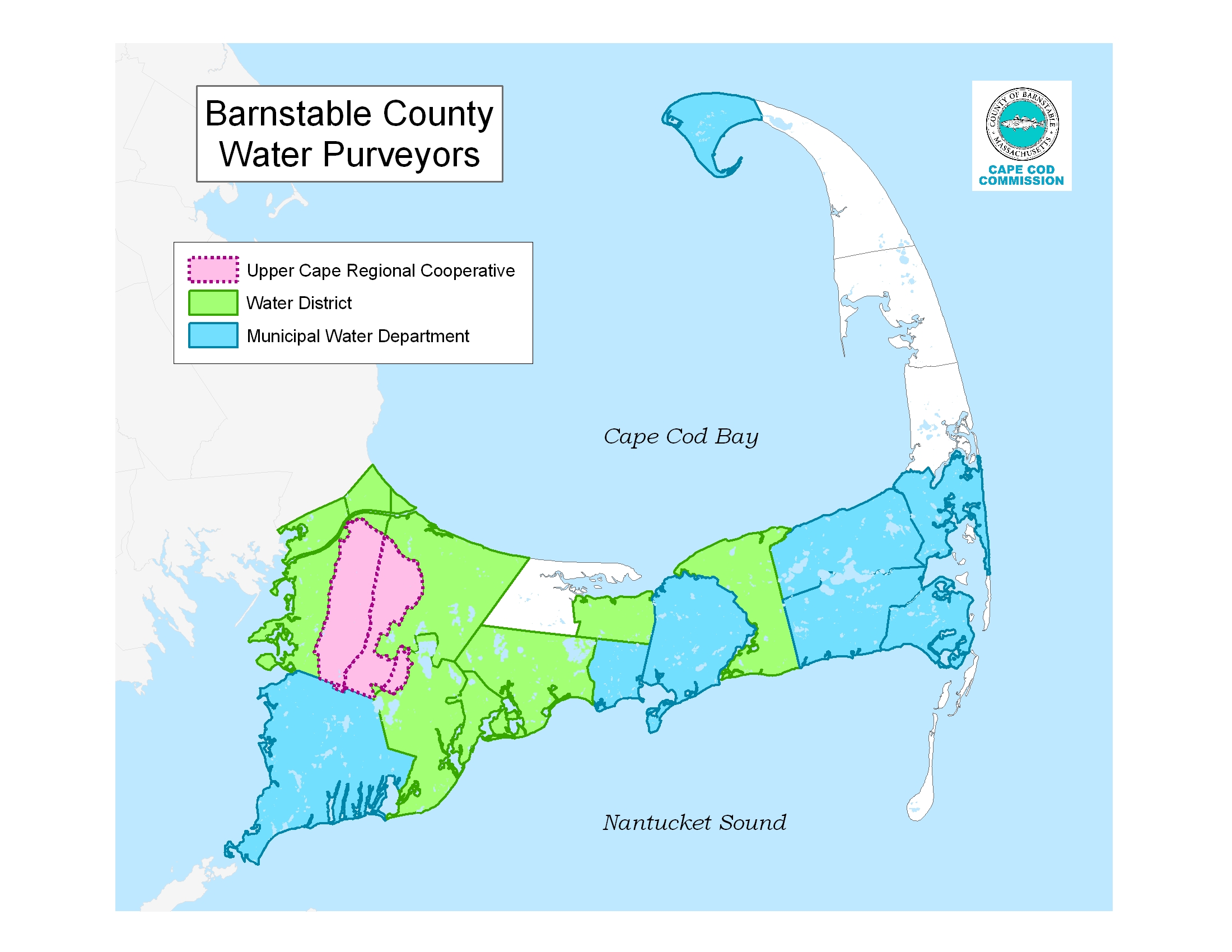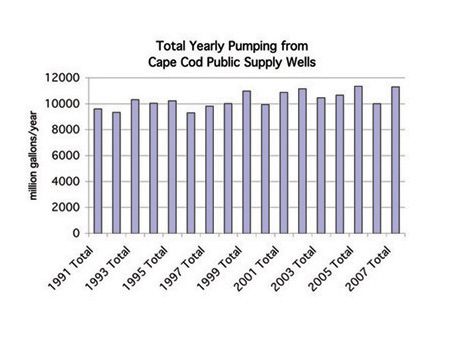
Where does your drinking water come from? If you live on Cape Cod, your water supply comes from either a municipal or private supply well, fed by groundwater from Cape Cod's unconfined, sole source Aquifer, one of the most productive groundwater systems in New England.
FOR MORE INFORMATION CONTACT YOUR WATER SUPPLIER DIRECTLY (or click on the links provided below): | |
| Hyannis Water Division | 508-778-6917 |
| Barnstable Fire District | 508-362-6498 |
| Centerville-Osterville-Marstons Mills Water Department | 508-428-6691 |
| Cotuit Water Department | 508-428-2687 |
| Bourne Water District | 508-563-2294 |
| Buzzards Bay Water District | 508-759-4631 |
| North Sagamore | 508-888-1085 |
| Otis Air National Guard Base Water | 508-968-4102 |
| Brewster Water Department | 508-896-5454 |
| Chatham Water Department | 508-593-4766 |
| Dennis Water District | 508-398-3351 |
| Falmouth Water Department | 508-457-2543 |
| Harwich Water Department | 508-432-0304 |
| Mashpee Water District | 508-477-6767 |
| Orleans Water Department | 508-240-3700 |
| Provincetown Water Department | 508-487-7064 |
| Sandwich Water District | 508-888-2775 |
| Yarmouth Water Department | 508-771-7921 |

Municipal Suppliers
The Cape Cod Aquifer provides 100% of the Cape’s drinking water. There are 18 separate water districts, or departments across Cape Cod. Altogether, there are 158 gravel pack water supply wells and one surface reservoir. Approximately 85% of Cape Cod is serviced with public water. The Outer Cape communities of Truro, Wellfleet, and Eastham are serviced almost entirely with private or small volume wells. Some towns are moving to municipal drinking water, such as Eastham.
Water Quantity
Since 2000, public community drinking water suppliers have pumped, on average, about 10.7 billion gallons of groundwater per year from Cape Cod’s Sole Source Aquifer. The graph (left) shows that pumping over the last decade has fluctuated due to seasonal climatic variations, such as rainy summers, but it remains fairly consistent. A study by the U.S. Geological Survey indicates that groundwater pumping accounts for approximately 10% of the annual recharge from precipitation.

